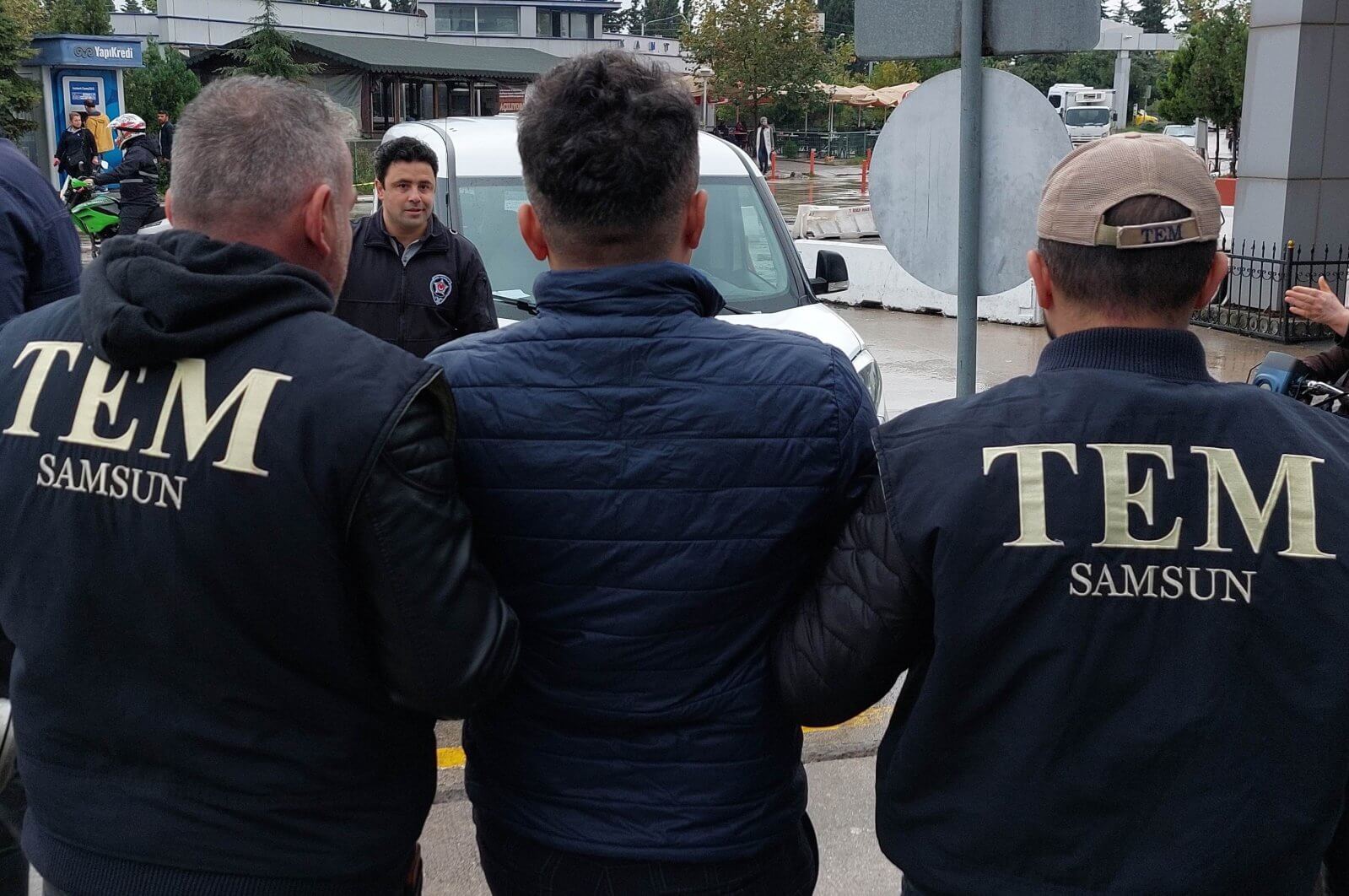Turkish police on Tuesday arrested over 500 people, including military and justice department officials, suspected of having close links to Fethullah Gülen, an Islamist preacher accused of orchestrating the failed military coup attempt in 2016.
Interior Minister Süleyman Soylu revealed that over 700 arrest warrants had been issued and 543 people detained. He said the police conducted raids across 59 provinces as part of the Gazi Turgut Aslan operation to crack down on Gülenist Terrorist Organization (FETÖ) operatives and supporters.
Soylu said the operations targeted FETÖ’s financial and recruiting networks. He noted that the arrested individuals were involved in collecting and distributing funds received by foreign supporters of Gülen. “It was established that regular and systematic transfers of money were made to members of the organisation, who participated in the structuring of FETÖ terrorist organisation and strictly followed the organisational instructions,” Soylu remarked.
The sheer number of these detentions is terrifying.
— Rebecca Harms (@RebHarms) October 18, 2022
Five Hundred Forty Three in 1 day!
That the food donations to families of incarcerated people are allegedly a reason for detention is insane. #Turkey
No #RuleOfLaw @Judges4J @IntlWomenJudges @UNIndepJudges
According to Soylu, planning for the operation began eight months ago, when it was discovered that FETÖ operatives made use of cardless payments, goods deliveries, and physical meetings to distribute goods and money to potential recruits.
The investigation and operations were conducted by the Financial Crimes Investigation Board (MASAK) with the help of the Anti-Smuggling and Organized Crime, Anti-Terrorism, and Intelligence departments.
However, according to the Stockholm Centre for Freedom (SCF), the police arrested most individuals for donating food aid to impoverished families of those arrested or punished by Turkish officials for having links with the Gülenist movement. The SCF notes that following the 2016 military coup, the government began cracking down on people with even remote links to the organisation.
I strongly condemn the mass arrests of Gülen followers in #Turkey. No one should be persecuted for their political beliefs. I am calling on President Erdogan to release these political prisoners. As a NATO ally, Turkey must uphold its commitment to human rights and democracy. https://t.co/7fHF3iN1ZD
— Rep. Eric Swalwell (@RepSwalwell) October 19, 2022
“Victims of Turkey’s post-coup crackdown say they and their families experience severe financial and psychological problems due to what they call hate speech employed by the government and its supporters against them,” the SCF said.
Several US Congressmen criticised the latest round of arrests. Democratic lawmaker Eric Swalwell said, “I strongly condemn the mass arrests of Gülen followers in Turkey. No one should be persecuted for their political beliefs. I am calling on President Erdoğan to release these political prisoners.” Similarly, Republican representative Mario Díaz-Balart said the arrests were “reprehensible,” and that “assaults on free expression and political opinion in Turkey must end.”
Turkish President Recep Tayyip Erdoğan has repeatedly accused Gülen, a former ally, of masterminding the failed military coup against him. The President has also accused the United States (US) of providing Gülen with refuge after Washington denied Ankara’s extradition request.
I am disheartened to hear of the mass detentions of Gülen followers in Turkey. I condemn this type of political persecution & urge Turkey to immediately release these political dissidents. Turkey needs to starting acting like a NATO ally and must cease this political persecution.
— Rep. Brian Fitzpatrick 🇺🇸 (@RepBrianFitz) October 18, 2022
On 15 July 2016, a faction of the Turkish armed forces attempted a coup against government institutions and tried to oust Erdoğan from power. However, the attempt failed to materialise, as thousands of civilians blocked the streets and prevented the coup. As a result, armed units loyal to the government were able to quickly retake control.
Over 250 people died during the coup attempt and more than 2000 were injured. Immediately following the events of 15 July, the Turkish government blamed Gülen, who has been in the US since 1999, for planning the coup and labelled FETÖ a terrorist organisation. The government also arrested tens of thousands of military officials, soldiers, judges, and teachers over their alleged links to the Gülenist movement.
The justice ministry has sentenced more than 265,000 people on terrorism charges and thousands among them were given life terms in prison with no chance of parole.

